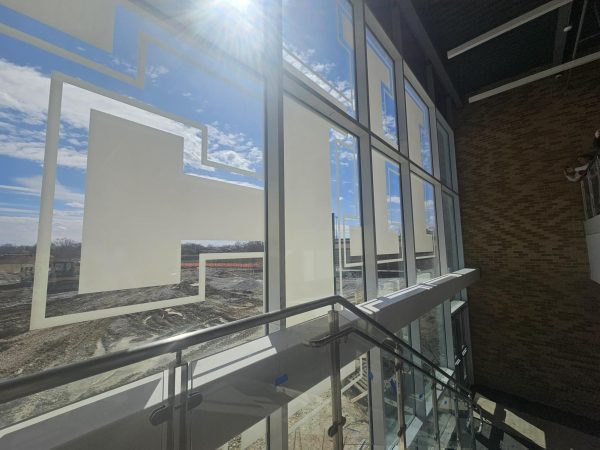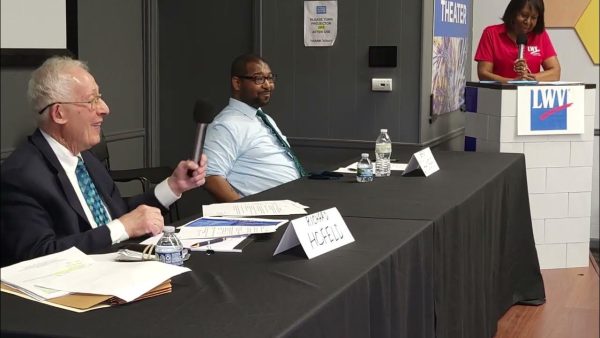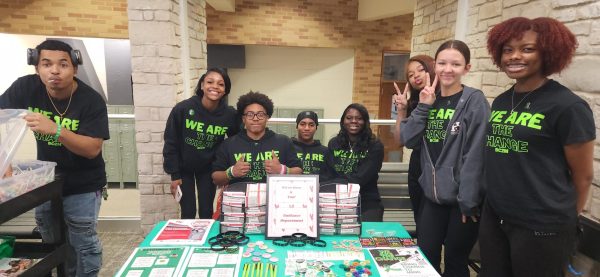To tax or not to tax?
Recent UN report on climate change sparks renewed interest in carbon tax
Earlier this month the United Nations’ scientific panel released a new report on climate change that found if our greenhouse gas emissions continue at the current rate, the atmosphere will warm up by as much as 2.7 degrees Fahrenheit (1.5 degrees Celsius) above pre-industrial levels by 2040.
This may not seem like much, but warming by this much could mean massive die-offs in coral reefs, water shortages, life-threatening heat waves, flooding and so much more.
The report comes as a shock to many because it paints a picture that is a lot worse than many people previously thought. This is also because avoiding the damage that the report details would require “transforming the world economy within just a few years,” according to the New York Times. The damage would cost $54 trillion.
According to the report, a high tax or price on carbon dioxide emissions would be required, “perhaps as high as $27,000 per ton by 2100.”
AP Environmental Science teacher Stephanie Gioiosa said she doesn’t believe a coal tax is needed because it will always cost less to use it than renewable energy, even with a tax.
“It depends on how high the tax is. We also haven’t produced renewable energy on a mass scale yet,” Gioiosa said. “So do I think that [a coal tax] alone will help reduce the amount of people using coal? No.”
The UN says that it is technically possible to prevent 2.7 degrees of warming but it will be hard because of the state of United States politics. Gioiosa recognized this.
“With Trump as President a coal tax won’t be passed. If it was Obama then yes. Trump would show how the tax would negatively affect the economy. He’s all about the bottom line, the tax would hurt the bottom line,” Gioiosa said.
Science teacher Matt Knoepke said the idea of charging for carbon emissions has been around for a long time and hopes a tax will actually be passed.
“The tax is just one idea but we also pay far less for services than what the actual cost of it is,” Knoepke said. “So, when we begin to pay the full price of the impact of a gallon of gas or the amount of energy it takes to light a lightbulb in our home, is when human behaviors will change.”
The report also said that greenhouse pollution must be “reduced by 45 percent from 2010 levels by 2030, and 100 percent by 2050.” Knoepke said he believes this is possible but will be hard because “we are not at a place where people are willing to make these kinds of sacrifices.”
“2030 and 2050 seem like a long way away, and there are more pressing matters that are affecting people today,” Knoepke said. “In order to affect the changes that are necessary, I think consideration needs to be given to economic incentives to influence people to make these decisions today rather than in 10 or 20 years from now.”
As previously stated, the idea of a tax on carbon has been around for a while, but has been consistently turned down because of concerns about the economy. Most recently, a vote occurred in the House of Representatives about whether a carbon tax would be “detrimental to the United States economy.”
The vote was 229-183 in favor of yes. 226 Republicans and 3 Democrats voted that the tax would be detrimental and 183 Democrats voted that it wouldn’t. Republican Illinois Representatives voted yes and Democratic Illinois Representatives voted no, including the Representative of our district, Robin Kelly.
Rick Bryant, Senior Adviser to Illinois Congressional Representative Kelly, said that Kelly’s office has been active in environmental protection efforts and Illinois and federal lawmakers “need to acknowledge the science behind this [climate change]” in order for a carbon tax to be passed. He also said the biggest barrier when addressing climate change is Trump.
“I think everyone seemed to agree before he took office that this was a serious problem. Now we’ve been pulled out of the Paris Agreement,” Bryant said. “He has some influence over members of Congress, they used to believe in climate change and now they don’t. There was bipartisan agreement until he took office.”
Bryant also said Kelly has helped in the effort to combat climate change by getting petcoke banned in Chicago. Petcoke or petroleum coke is a solid, black carbon material that is a byproduct of the oil refining process and can be harmful to humans if inhaled.
“Petcoke was blowing through communities in Chicago and Representative Kelly led the effort to ban it,” Bryant said. “However, we haven’t been able to pass federal law because the Republicans control the House and Senate.”
Kelly has been the representative of the 2nd Congressional District of Illinois since 2013 and is currently running for re-election as the Democratic nominee in the Midterm elections on November 6th. David Merkle is the Republican candidate. We were unable to reach out to Merkle for questioning.
However, in an interview with the Chicago Sun Times, when asked about the Trump administration’s rollback on “Obama-era policies aimed at curbing climate change and limiting environmental pollution” and dismantling Obama’s federal rules regarding American coal plants, weakening standards on automobile fuel-economy and ending American participation in the Paris Agreement Merkle said:
“So far to date everything President Trump has changed has been to benefit the American people. He is working towards predetermined goals to make the USA and the world a better place. He has addressed healthcare, veteran affairs, economy issues, tariff concerns, education, criminal justice, etc.”
He also said the world must take responsibility immediately for the issue of pollution otherwise, “there will be no future for our children.”
In order to help reduce the effects of climate change Gioiosa gave some tips.
“Reduce consumption of meat. Look at other alternatives because we still need protein. Also, buying local produce, if it’s local it would be produce that naturally grows in the environment and won’t need excess water to grow,” she said. “And voting for candidates that are as concerned about climate change as much as you are and who would have some ideas about how they would address it.”









